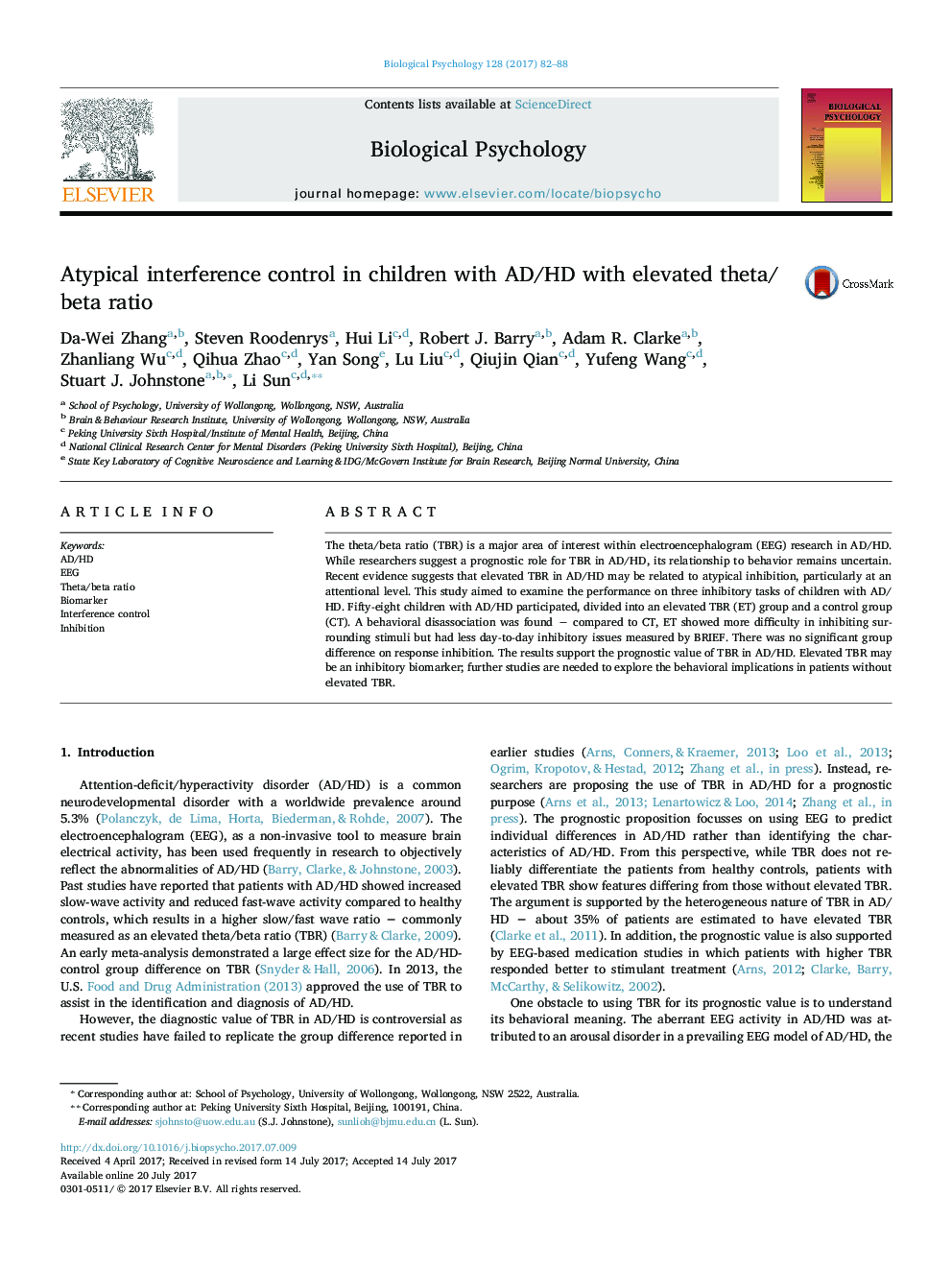| Article ID | Journal | Published Year | Pages | File Type |
|---|---|---|---|---|
| 5040383 | Biological Psychology | 2017 | 7 Pages |
â¢The relationship between TBR and inhibitory functions was examined in children with AD/HD.â¢The AD/HD group with elevated TBR showed difficulty in inhibiting surrounding stimuli.â¢The elevated TBR AD/HD group had less day-to-day inhibitory issues than the AD/HD group without elevated TBR.â¢The relationship between different inhibitory functions was atypical in the elevated TBR group.â¢The results suggest that TBR may server as a biomarker for inhibition in children with AD/HD.
The theta/beta ratio (TBR) is a major area of interest within electroencephalogram (EEG) research in AD/HD. While researchers suggest a prognostic role for TBR in AD/HD, its relationship to behavior remains uncertain. Recent evidence suggests that elevated TBR in AD/HD may be related to atypical inhibition, particularly at an attentional level. This study aimed to examine the performance on three inhibitory tasks of children with AD/HD. Fifty-eight children with AD/HD participated, divided into an elevated TBR (ET) group and a control group (CT). A behavioral disassociation was found â compared to CT, ET showed more difficulty in inhibiting surrounding stimuli but had less day-to-day inhibitory issues measured by BRIEF. There was no significant group difference on response inhibition. The results support the prognostic value of TBR in AD/HD. Elevated TBR may be an inhibitory biomarker; further studies are needed to explore the behavioral implications in patients without elevated TBR.
